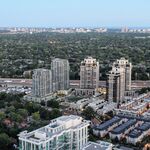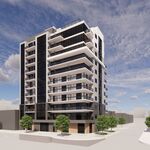wyliepoon
Senior Member
Link to article
Condos, costs squeeze Vancouver office space
DAVID EBNER
From Monday's Globe and Mail
June 29, 2008 at 10:33 PM EDT
VANCOUVER — The numbers, at first glance, couldn't look better for a commercial real estate developer.
On the small peninsula that constitutes downtown Vancouver, there's barely any available office space. The 2.6-per-cent vacancy rate ranks as the lowest of any city core in North America. And rents are soaring, with the cost of prime office space jumping 25 per cent in just one year to more than $34 per square foot.
Yet hardly any new commercial space is being built. Just 130,000 square feet is under construction in downtown Vancouver, which would add less than 1 per cent to what exists. It's a fraction of what's happening elsewhere: Calgary's downtown is expanding by 5.6 million square feet, or 17 per cent, and Toronto is growing by 3.8 million square feet, or 5 per cent.
Construction costs have risen far faster than rents, driven by a Western Canadian construction boom that has made labour scarce and expensive, and the climbing cost of materials such as steel.
Jeff Vinnick for the Globe and Mail
Enlarge Image
(Jeff Vinnick for the Globe and Mail)
The Globe and Mail
Vancouver developers say they just can't make the numbers add up for new projects. In Calgary, for example, the energy boom allows developers to charge $45 a square foot, a third more than they can get in the Vancouver market.
“It takes a lot of nerve to build today,†said Don Vassos, a senior vice-president at real estate services firm CB Richard Ellis Ltd. who opened the company's Vancouver office 24 years ago.
Since then, the downtown has gone through a transformation that helped produce the current shortage of commercial space. It's a trend the city now hopes to reverse.
In the 1980s and 1990s, planners and politicians set about creating the Vancouver that currently exists, one consistently on best-places-to-live lists. Under the rubric of “living first,†the city heavily promoted residential development downtown, pushing the population on the peninsula to 90,000, more than double the 40,000 or so in the mid-1980s.
But the dozens of residential condominiums have begun to squeeze the commercial core. Four years ago, alarm bells started going off for planners when Duke Energy sold the landmark Westcoast Transmission building for a condo conversion. That provoked the city to impose a temporary halt on such changes in the central business district.
With developers predicting that Vancouver will run out of space to build new commercial buildings in the next 20 years, city council is poised to encourage construction of more office space. In July, it will consider a series of proposals from planners that include an expanded central business district, tighter rules on condo conversions and proposals to allow taller towers with more density.
Until things change, however, businesses will continue to feel the squeeze.
Part of the problem, developers say, is that condos are far more profitable than commercial space because residential buyers are willing to pay large premiums for benefits such as views of the ocean and mountains.
And unlike Calgary and Toronto, where large corporations drive demand for many storeys of commercial space, the typical Vancouver tenant is more likely to be a law firm or upstart technology company requiring far less space. Developers have to sign on many more tenants to make a project work instead of landing one big name.
Some Vancouver developers say the city has to take measures to encourage new commercial buildings that go beyond the proposals city planners have put together.
“They need to address costs,†said Tony Astles, executive vice-president for B.C. at Bentall Real Estate. “And they need to address the length of time it takes to go through the whole process, from zoning to approvals.
“It's a clogged-up system. Right now, it's very difficult to rationalize a high-rise office tower in downtown Vancouver. The costs of construction have risen so fast that rents – even though they're at their all-time high – haven't ket up.â€
Condos, costs squeeze Vancouver office space
DAVID EBNER
From Monday's Globe and Mail
June 29, 2008 at 10:33 PM EDT
VANCOUVER — The numbers, at first glance, couldn't look better for a commercial real estate developer.
On the small peninsula that constitutes downtown Vancouver, there's barely any available office space. The 2.6-per-cent vacancy rate ranks as the lowest of any city core in North America. And rents are soaring, with the cost of prime office space jumping 25 per cent in just one year to more than $34 per square foot.
Yet hardly any new commercial space is being built. Just 130,000 square feet is under construction in downtown Vancouver, which would add less than 1 per cent to what exists. It's a fraction of what's happening elsewhere: Calgary's downtown is expanding by 5.6 million square feet, or 17 per cent, and Toronto is growing by 3.8 million square feet, or 5 per cent.
Construction costs have risen far faster than rents, driven by a Western Canadian construction boom that has made labour scarce and expensive, and the climbing cost of materials such as steel.
Jeff Vinnick for the Globe and Mail
Enlarge Image
(Jeff Vinnick for the Globe and Mail)
The Globe and Mail
Vancouver developers say they just can't make the numbers add up for new projects. In Calgary, for example, the energy boom allows developers to charge $45 a square foot, a third more than they can get in the Vancouver market.
“It takes a lot of nerve to build today,†said Don Vassos, a senior vice-president at real estate services firm CB Richard Ellis Ltd. who opened the company's Vancouver office 24 years ago.
Since then, the downtown has gone through a transformation that helped produce the current shortage of commercial space. It's a trend the city now hopes to reverse.
In the 1980s and 1990s, planners and politicians set about creating the Vancouver that currently exists, one consistently on best-places-to-live lists. Under the rubric of “living first,†the city heavily promoted residential development downtown, pushing the population on the peninsula to 90,000, more than double the 40,000 or so in the mid-1980s.
But the dozens of residential condominiums have begun to squeeze the commercial core. Four years ago, alarm bells started going off for planners when Duke Energy sold the landmark Westcoast Transmission building for a condo conversion. That provoked the city to impose a temporary halt on such changes in the central business district.
With developers predicting that Vancouver will run out of space to build new commercial buildings in the next 20 years, city council is poised to encourage construction of more office space. In July, it will consider a series of proposals from planners that include an expanded central business district, tighter rules on condo conversions and proposals to allow taller towers with more density.
Until things change, however, businesses will continue to feel the squeeze.
Part of the problem, developers say, is that condos are far more profitable than commercial space because residential buyers are willing to pay large premiums for benefits such as views of the ocean and mountains.
And unlike Calgary and Toronto, where large corporations drive demand for many storeys of commercial space, the typical Vancouver tenant is more likely to be a law firm or upstart technology company requiring far less space. Developers have to sign on many more tenants to make a project work instead of landing one big name.
Some Vancouver developers say the city has to take measures to encourage new commercial buildings that go beyond the proposals city planners have put together.
“They need to address costs,†said Tony Astles, executive vice-president for B.C. at Bentall Real Estate. “And they need to address the length of time it takes to go through the whole process, from zoning to approvals.
“It's a clogged-up system. Right now, it's very difficult to rationalize a high-rise office tower in downtown Vancouver. The costs of construction have risen so fast that rents – even though they're at their all-time high – haven't ket up.â€




